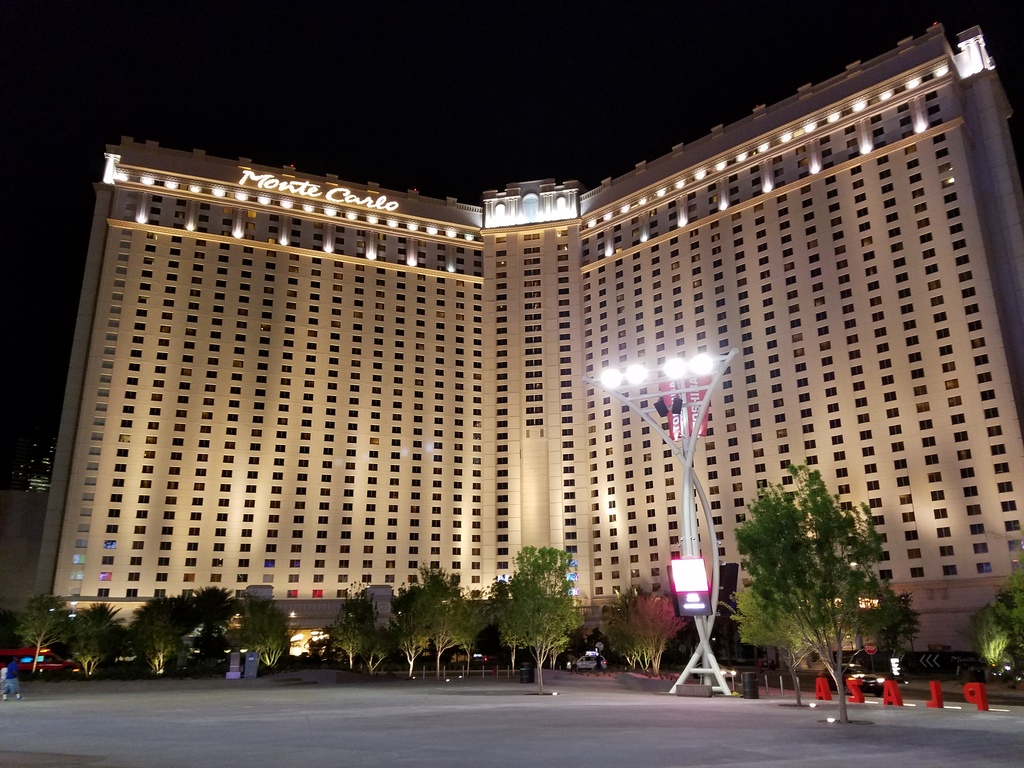“Resort fees” are extra charges, on top of a room rate, that aren’t optional. In other words they’re part of the price of a room, but the hotel advertises a lower price instead. That’s on face deceptive.
There is a clear logic for a hotel to charge a resort fee.
- If a hotel charges a $250 room rate and a $30 resort fee, that’s $280 a night. Yet that hotel appears to have a lower rate than one which charges $270 a night with no resort fee.
- If everyone else is doing it, a hotel that doesn’t is at a disadvantage.
- If no one else is doing it, it’s a way to gain an advantage.
- What’s more, the resort fee may not be commissionable and may not be discounted under group corporate deals, so money called a resort fee may be more profitable than money that’s part of a room rate.
What’s become especially egregious in recent years is the spread of resort fees to new markets, under different marketing. City hotels aren’t resorts and instead they promote “destination fees.”
Resort Fees are Ok With the FTC
Guidance from the Federal Trade Commission, though, is that resort fees are fine if they aren’t deceptive which means “a hotel prominently discloses the resort fee upfront and includes it in the total price.”
Generally speaking resort fees make it difficult to know at the start of search how much a hotel will cost, and makes it difficult to compare prices, but consumers are aware of such fees before they stay.

How Loyalty Programs Handle Resort Fees
Hilton and Hyatt don’t charge guests resort fees when redeeming points. Hyatt waives resort fees for top tier elites on paid stays. Marriott makes guests using their points pay resort fees.
Marriott’s terms say that if a hotel includes internet access in their resort fee then they must offer program members a different benefit. That almost never happens, and members should complain every time it doesn’t.
Participating Properties that have mandatory resort charges, which include internet access, will provide a replacement benefit, to be determined at each Participating Property’s discretion.
Hilton Honors says that if a resort charge includes an elite benefit, then it’s not an elite benefit at that hotel,
These Amenities are offered solely at the discretion of Hilton HHonors Worldwide, L.L.C., and the individual hotel. Not all Amenities are provided by all hotels within the Hilton Worldwide portfolio. When payment of a resort charge is required, check individual hotel for availability of included Amenities.

Cosmopolitan Las Vegas Charges a $39+tax Resort Fee
At Hilton resort fees actually reduce elite benefits which is another downside to resort fees.
Washington DC is Suing Marriott Over Resort Fees
The attorney general for the District of Columbia has filed a lawsuit against Marriott over resort fees. There is no logical reason to single out Marriott over Hilton or IHG other than that DC happened to investigate them as part of a multi-state attorneys general project. (Filing is here.)
Note, however that DC does not “seek[..] to criticize or outlaw the practice of having resort fees” as long as they are “fully and fairly disclosed to consumers in a transparent way.” And in fact current resort fee practices likely meet this standard most of the time. It’s an outlier case where resort fees are not put in front of guests at the time of booking. That’s why the Federal Trade Commission hasn’t had a problem with resort fees.
The problem with resort fees is that they:
- Are unquestionably disingenuous, a mandatory fee to stay at a hotel is also called ‘the price’ and there’s no valid reason for separating it out and indeed for not showing it as part of the cost of a stay.
- Make comparison shopping difficult, and create an incentive for others’ to obfuscate true costs to consumers.

Cosmopolitan Las Vegas
The question isn’t whether resort fees are described as offering services that provide value to a consumer. They usually don’t but that’s irrelevant. They’re simply a bad business practice.
Even DC, which is suing, admits that they’re legal as long as they’re disclosed. So the relevant question is what level of disclosure is necessary under the law (and in this case it’s a function of District of Columbia law, and they’re seeking funds in part to reimburse -District of Columbia residents).
Is failure to include a mandatory resort fee in a hotel’s room rate per se deceptive? Is listing a resort fee in a category called ‘taxes and fees’ misleadingly suggesting that the cost is mandate by the government?
There’s a Great Business Opportunity That Solves the Problem of Resort Fees
There are really two equilibria here: no one charges resort fees (although there’s an incentive for a given hotel to defect if resort fees are permissible as it makes their rates look cheaper than the competition) or everyone charges them.
If even one hotel charges them, we’d expect a shift towards everyone charging them. Destination charges were relatively new in New York just two years ago but have since become more common. So what’s stopping a hotel from instituting a resort (or destination) fee, leading others to follow?
To the extent resort fees aren’t illegal — the federal government says they aren’t and only DC’s Attorney General is acting so far, but won’t claim resort fees are or should be illegal — we need significant shaming of hotels to change their incentive. Hotels need to respect their guests, and that starts with honesty about the most basic element of a reservation, the rate.
The real solution comes from online travel booking sites. They’re afraid to show all-in pricing or else it’ll make another booking site appear to be cheaper, driving customers away to those sites.
An online travel website that actually had its customers best interests in mind, and helped consumers navigate getting not just ‘the best deal’ but ‘the best deal for them’ would, I think, generate real loyalty and earn outsized business. They would no longer have to spend billions to convince you to use their sites, you’d actually want to. Online travel agencies could earn business helping customers to compare options with all-in pricing.


Resort fees are designed for one purpose, to manipulate and deceive the customer. If you stay at a hotel with a resort/destination fee and this bothers you, be sure to rate accordingly and mention this in a TripAdvisor review. This is the best way to get their attention.
Would hotels threaten to pull inventories away from such OTA though?
The most hilarious (and absurd) versions of this is on Airbnb. Go on there and search for a room in Miami. You’ll get a ton of results that price out a room around $79/night. Then click through to book and you’ll see there is a $220/night “resort/cleaning” fee, which means the room is really $299.
Yes, fees that are 3x the cost of the room. I hope these hotel companies and Airbnb operators are sued into oblivion by state Atty Generals for engaging in such blatant fraud.
@PP I doubt it. There are really only 2 OTAs, Booking Holdings (owns booking.com and Priceline) and Expedia (owns pretty much everything else). Taking their inventory off of the OTAs would absolutely kill their occupancy.
I am going to start a hotel called Dollar Hotel and have big advertisements of all rooms with a $1 rate. And $299 in resort fees. I will be at the top of every search engine if sorted by price. YAY!
Why would anyone stay at the Cosmopolitan when they can stay at my house?
@toomuchflying- ABSOLUTELY! We have a semi-annual trip to FL we have to take and every time I book the condo in PC Beach, I go through that. Condo price is $79 a night, three night total ends up being$750???? and there is a ridiculous “booking” fee of $40-$100 and then a cleaning fee of $250 or some other absurd rate. My guess is that Vrbo or AirBnB doesn’t take their cut off of that either so they jack these fees up. I refuse to pay it, keep looking for a sane price, there are thousands in the area so it is just a matter of sorting. Same with hotels, unless I have a compelling reason to stay at a particular property, I just refuse to pay a resort fee, it just seems dishonest and like a crappy way for a hotel to treat its customers. And yes, IF I do pay it, I also leave a negative review about the fees.
@toomuch flying-also, if ANY state is likely to take action, I’d bet my money on FL…when I lived there, the state was active in consumer protections, lots of AARP involvement as well. IF we really want to get rid of these fees Gary, the BEST way would be to get AARP on it, they’re like a bulldog on a t-bone once they get a whiff and are very effective in advocating for their members. Wouldn’t it be great if Congress worked for the people the way AARP fights for its members?
In the same vein, the US Govt should ban airline fuel surcharges for flights departing from or landing in the US.
Resort fees and other similar charges are deceptive and grossly dishonest! For transparency, there should be one total price for a specific hotel room with detailed information and listed upfront for consumers.
Resort fees bundle services, some of which are not needed by many guests. Is that right/legal to be charged for services you don’t use?
From a TripAdvisor review I left for our stay at the DoubleTree by Hilton Hotel Berkeley Marina: “Check in was a bit of a zoo–not enough staff, and they charged us more than our confirmed reservation but corrected it after we pointed out their error. Good we didn’t have to park because the rates for that were outrageous, but they have a captive audience. The biggest indignity: $25 a person for a buffet breakfast–no matter what you ate–with no sign announcing it wasn’t a gratis meal; sorry, but that was a total rip-off.” Note: My husband and I stayed there as part of a large group the night before a wedding (held elsewhere). We joined the group for breakfast–a buffet; I had a Diet Coke and my husband had a cup of coffee, as neither of us was hungry. Sorry–that wasn’t worth the $50 we were charged WITH NO SIGNAGE. And because we were part of a group of people we hardly knew, we chose not to make a stink–and cause any embarrassment to the young bride-to-be.
It’s not just Miami that’s bad with Airbnb pricing. It’s pretty much every U.S Destination now that has a cleaning/booking fee. Europe still shows the “total” price.
@Gary: You gloss over the single most important mechanism by which “resort fees” cheat the customer. I.e. they revoke all the advantages the Internet brought to making hotel reservations. With part of the room cost excluded from the published rate, online prices become non-comparable.
This has actually changed my behavior. I’m now going to be booking the bulk of my hotel stays with Hyatt for the sole purpose of when I go on vacation, I want my hard earned points to actually get me a free room. And I’m an ambassador guest with Marriott, but pretty much done with them until they decide to waive this for at least top tier elites, if not all reward stays outright
Hotels will stop scamming customers with hidden fees when customers refuse to do business with dishonest hotels.
Hotels will cease scamming customers with hidden fees when customers refuse to do business with those dishonest hotels.